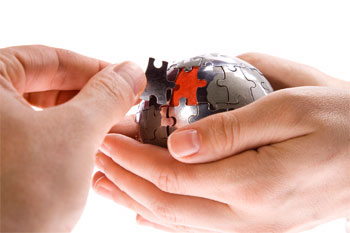When properly preserved, tissue can be used far into the future to study questions
that may not even be thought of today, or that use technologies that have not yet
been invented. However, issues of who owns stored tissue (patients, researchers,
hospitals, or storage facilities) have sometimes gotten in the way of being able to
take advantage of stored tissue.
Thus far, although hospitals and pathologists generally feel that patients own their
samples the courts have ruled against patient ownership. However, this question will
continue to evolve.
Internationally, Iceland has had three different laws concerning ownership of the
physical samples and the information they may contain. Current Icelandic law holds
that the Icelandic government has custodial rights of the physical samples
themselves but the donors retain ownership rights. In contrast, Tonga and Estonia
cede ownership of biobank samples to the governments, but their laws include
strong protections of donor rights.
Why tissue donation is so important
When people are diagnosed with cancer, they probably aren't thinking of ways to
help prevent or treat the disease for future patients. However, a tissue donation to
their hospital tissue bank could help researchers do just that.
The purpose of the bank, and others like it is to collect, process and store tissue
samples for research. The more researchers learn about cancer, the more they
realize that each patient's disease progresses differently. Researchers hope to
advance treatment of the disease and help patients live longer.
By using donated tissue to study how cancer develops and how new drugs affect
samples before testing them in people, drugs that seem most likely to have the best
chance of success in humans can be moved rapidly from the laboratory to the clinic
resulting in benefit for patients.
Types of tissue needed
Important information about the biology of cancer, biomarker discoveries, new
targets and sub groups within each type of cancer can result from studies using
donated biospecimens. This information can then lead to use of new prevention,
diagnostic and treatment strategies, which are the promise of, personalized
medicine. To implement this promise researches need both normal and cancer
biospecimens.
Patients can donate:
- Left over samples obtained from surgical procedures or biopsies.
- Samples collected as part of a research clinical trial
Healthy individuals can donate:
- Normal samples when they have routine surgery or blood drawn.
CISN Summary:
Current research strategies are greatly enhanced by the contribution of tissue by
patients - those with cancer and those without. This is the only way science can
make advances in "personalized" medicines so doctors can treat tumors based upon
specific targets.
 |
- Consent forms need to be
fully explained to all
possible donors.
- Advocates play many roles
in translational research - get involved, be part of the
solution!!
|





